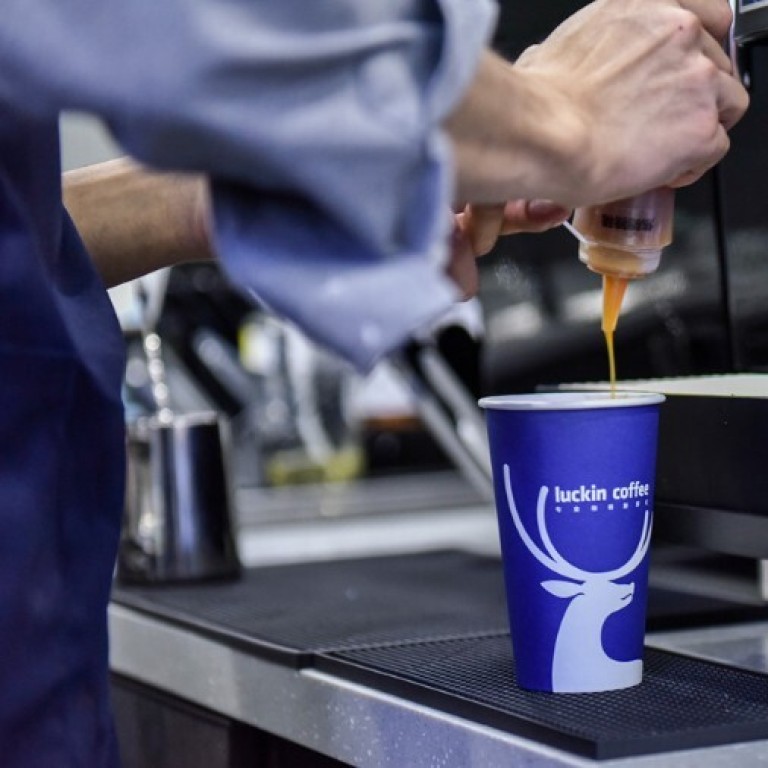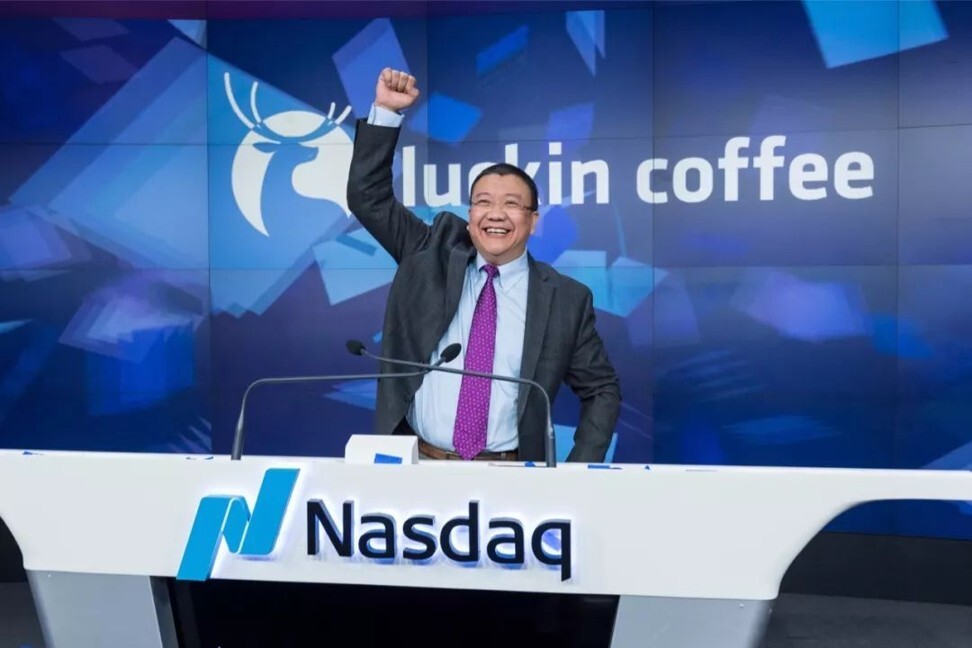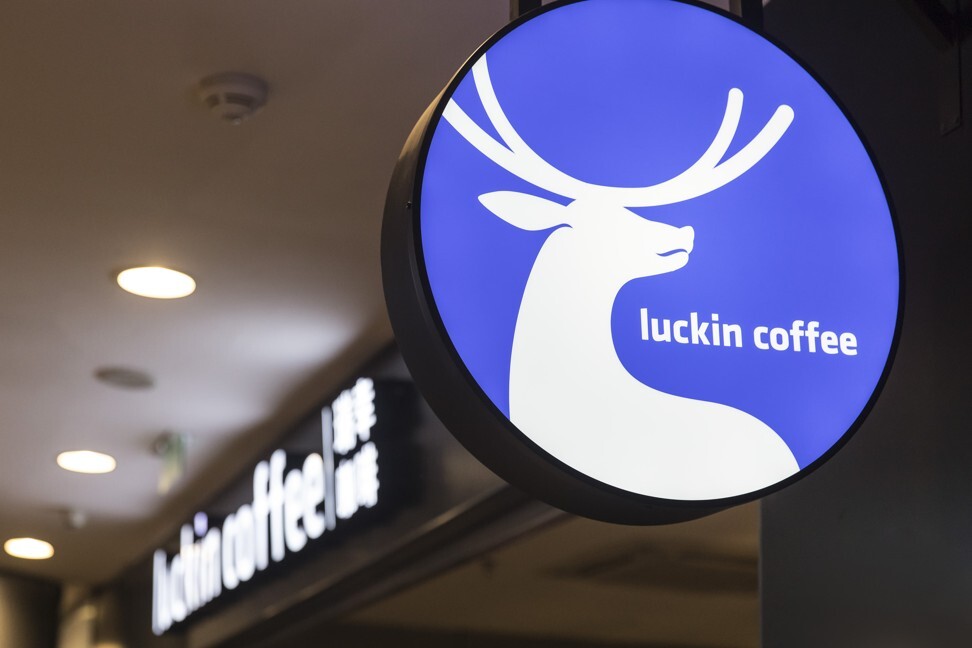
Luckin Coffee’s founder says sorry as Nasdaq prepares to kick out his stock for fraud, in the first expulsion of a Chinese company
- The decision was based on ‘public interest concerns’ over fabricated transactions recently disclosed by Luckin, as well as its past failures to publicly disclose information
- The scandal has undermined confidence in the accounting practices and financial reporting of Chinese companies listed abroad
The chairman of Luckin Coffee, touted as China’s answer to Starbucks, apologised over its US$310 million accounting fraud, which has led New York’s Nasdaq stock exchange to move to delist the company amid waning market trust in Chinese financial reporting.
Charles Lu Zhengyao, an angel investor and serial entrepreneur, said he is “deeply disappointed and regret” the delisting decision, which the Nasdaq exchange said was based on public interest concerns over recently disclosed fabricated transactions by company staff that amounted to 2.2 billion yuan (US$310 million).
“I have been in deep pain and guilt over the past month,” said Lu in a statement published on Chinese social media platform WeChat on Wednesday. “I again apologise to all the investors, staff and clients of Luckin for the terrible impact of the incident.”
Lu, who also founded China's largest car rental company Car Inc, said he never intended to defraud investors and only wanted to build good companies and create value for society. Shares of Hong Kong-traded Car, which was not implicated in the Luckin scandal, have fallen by 52 per cent since the coffee retailer’s accounting fraud was disclosed on April 1.

Lu, who holds a master's degree in business administration from Peking University, said he has put almost all of his money, including loans he took out by pledging his shares in Luckin, into supporting his companies, and never squandered it away for personal enjoyment, according to his statement.
Lu’s family trust held about 26 per cent of Luckin Coffee at the time the coffee chain filed its IPO prospectus in May last year, and the scandal likely has eroded its market value by about US$1.4 billion. The slump in Car Inc. likely set him back by at least HK$1.5 billion (US$129 million).
Luckin Coffee investors rue implosion on US$400 million bond bet after accounting scandal
The Xiamen-based start-up on Tuesday evening disclosed it had received a written notice from New York’s Nasdaq exchange on Friday that its listing qualifications staff has determined to delist the company’s securities. Under Nasdaq rules, Luckin Coffee – which was founded in 2017 and listed in 2019 – can appeal the exchange’s order, and a hearing is usually scheduled within 45 days of the appeal request.
Shares of the company, halted since April 7, will resume trading on May 20 on Nasdaq, after Luckin Coffee said it would appeal. Shareholders, including Singapore’s GIC, and the Qatar Investment Authority – according to exchange filings at the end of February – are almost certainly to rush for the exit when trading resumes, as Luckin Coffee faces expulsion pending the outcome of its appeal.

Despite the scandal, thousands of Luckin shops are still operating, supported by tens of thousands of staff, Lu said in the statement. He believes Luckin has a sound business model and good products, and asked for “forgiveness and support from all parties”.
Luckin Coffee had more than 3,500 outlets globally at the end of 2019.
The delisting announcement comes after new rules were introduced by Nasdaq, which will make it more difficult for some Chinese firms to float on its stock exchange. They include tougher accounting rules and a requirement that an IPO raises at least US$25 million.
China’s investigation of Luckin shows importance of US$7 trillion stock market
Though not directed specifically at Chinese companies, the curbs come amid escalating tension between the US and China, which spilled over from a year-long trade war into rivalry over technology and even to the exchange of blame for causing the coronavirus pandemic.
The Luckin Coffee scandal, meanwhile, has put a spotlight on how much investors should trust accounting by US-listed Chinese companies, and has exacerbated caution.
“Positions taken by Chinese authorities impede our ability to oversee PCAOB-registered audit firms in mainland China and Hong Kong,” the board said “Specifically, these positions currently impair our ability to conduct inspections of the audits of public companies with China-based operations.”


